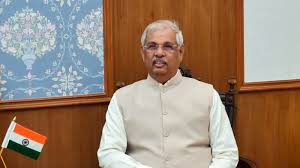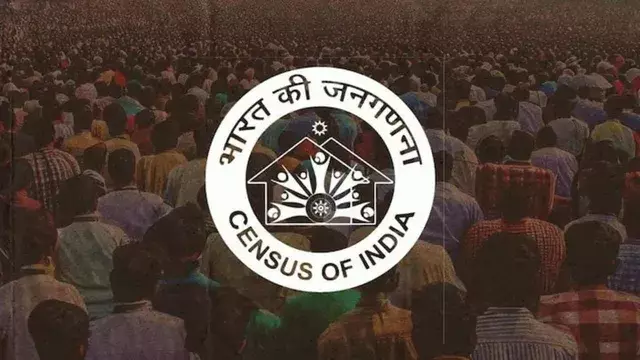- Courses
- GS Full Course 1 Year
- GS Full Course 2 Year
- GS Full Course 3 Year
- GS Full Course Till Selection
- Answer Alpha: Mains 2025 Mentorship
- MEP (Mains Enrichment Programme) Data, Facts
- Essay Target – 150+ Marks
- Online Program
- GS Recorded Course
- Polity
- Geography
- Economy
- Ancient, Medieval and Art & Culture AMAC
- Modern India, Post Independence & World History
- Environment
- Governance
- Science & Technology
- International Relations and Internal Security
- Disaster Management
- Ethics
- NCERT Current Affairs
- Indian Society and Social Issue
- NCERT- Science and Technology
- NCERT - Geography
- NCERT - Ancient History
- NCERT- World History
- NCERT Modern History
- CSAT
- 5 LAYERED ARJUNA Mentorship
- Public Administration Optional
- ABOUT US
- OUR TOPPERS
- TEST SERIES
- FREE STUDY MATERIAL
- VIDEOS
- CONTACT US
Governor’s Delay Impact on Kerala’s University Plans
Governor’s Delay Impact on Kerala’s University Plans

Why in the News?
- The Kerala government’s plan to start private universities is stuck.
- This is due to the delay in the Governor’s assent to the Kerala State Private Universities (Establishment and Regulation) Bill, 2025.
- This delay is affecting planning for the 2026–27 academic year.
Key Highlights: -
- Delay in Governor’s assent
- The Bill has been pending for over two months.
- This delay may affect timely investment and planning in the higher education sector.
- What the Bill says
- Once the Bill becomes law, the government will invite proposals from groups interested in setting up private universities.
- These groups must send detailed project reports with academic, financial, and infrastructure details.
- A committee will check these reports and give permission if they meet all conditions.
- Approval process
- After getting initial permission, the sponsor will:
- Set up the required infrastructure.
- Get approvals from bodies like:
- University Grants Commission (UGC)
- All India Council for Technical Education (AICTE)
- Medical Council of India
- Indian Nursing Council
- After getting initial permission, the sponsor will:
- Urgency of Timeline
- To start in the 2026–27 academic year, work must begin now.
- Any more delay in the Governor’s assent may make it impossible to meet the deadline.
- Interest from stakeholders
- Many educational groups and business groups are interested in setting up private universities in Kerala.
- Other states ahead
- Over 450 private universities exist in India, but Kerala has none so far.
- Other states have passed similar laws already.
|
About the Governor:
Powers and Functions of the Governor:
Legal Stance over Delay:
|
Challenges and Way Forward
|
|
Challenges |
Way Forward |
|
1. |
Academic Planning Disruption |
Accelerate decision-making through dialogue to ensure that private universities are launched on time. |
|
2.
|
Loss of Investment Opportunities |
Engage with investors to maintain interest and assure timely implementation once assent is secured. |
|
3. |
Brain Drain Risk |
Expand higher education opportunities and fast-track approvals to retain student talent. |
|
4. |
Administrative Deadlock between Governor and State Government |
Establish formal communication channels or seek mediation to resolve constitutional or procedural concerns. |
|
5. |
Negative Perception about Policy Stability in Kerala |
Share clear messages and involve experts to show that Kerala is serious about improving education. |
|
6. |
Delay in Legislative Reforms Impacting Education Sector Growth |
Consider judicial clarity on the Governor's role or make small changes in the Bill to remove any confusion. |
Conclusion:
The delay in getting the Governor’s approval is creating serious problems for Kerala’s plans to start private universities. To move forward, the State government and the Governor need to work together, clear up any doubts, and make quick decisions. Solving this issue soon will help Kerala grow in higher education and give students better opportunities without having to leave the State.
|
Ensure IAS Mains Question: Q. The delay in granting assent to State legislation bill by the Governor can impact governance and development of the state. Critically examine this statement in the context of the Kerala State Private Universities Bill, 2025. (250 Words) |
|
Ensure IAS Prelims Question: Q. Consider the following statements regarding the powers of the Governor as per Indian Constitution:
Which of the statements given above is/are correct?
Answer: b Explanation: Statement 1 is correct: The Governor, under Article 200 of the Constitution, can withhold assent to a Bill passed by the State Legislature. This is one of the discretionary powers available to the Governor in the legislative process. Statement 2 is incorrect: Unlike the President, the Governor is not constitutionally bound to give assent to a Bill re-passed by the State Legislature. The Constitution does not specify any time limit or obligation in such a case. Statement 3 is correct: The Governor can reserve certain Bills for the consideration of the President under Article 200. This is usually done if the Bill conflicts with central laws, affects national interest, or raises constitutional concerns. |




